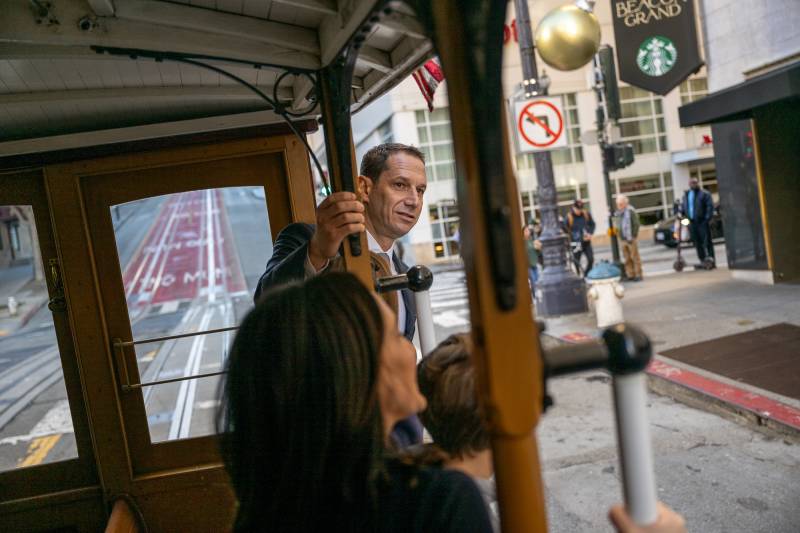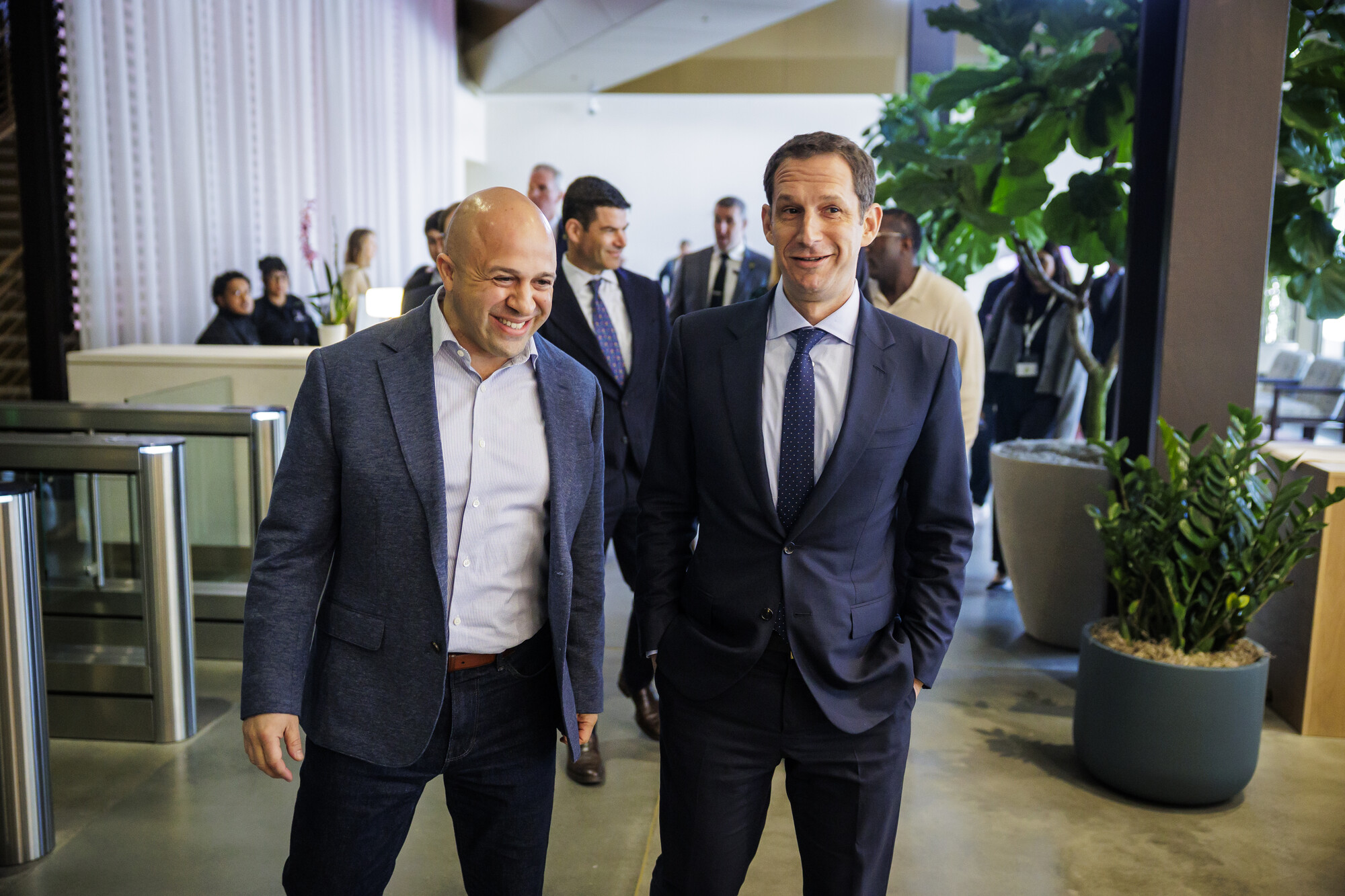This column was reported for Political Breakdown, a bi-monthly newsletter offering analysis and context on Bay Area and California political news. Click here to subscribe.
Mayor Daniel Lurie is coalescing the city’s upper crust to boost San Francisco’s rebound.
Supporters say San Francisco needs every dollar it can get — as the city faces a nearly $1 billion budget deficit — to make progress on scant affordable housing, rising overdose rates and a struggling downtown economy. Federal spending cuts threaten even more financial problems.
But Lurie’s power play has also raised eyebrows among some government ethics watchdogs who see a small but powerful business class gaining influence in City Hall.
This week, several Lurie supporters announced the Downtown Development Corporation, a new nonprofit that will fundraise for projects aimed at improving street and business conditions. The group is led by David Stiepleman, co-president of the investment firm Sixth Street, and Sam Cobbs, CEO of Tipping Point Community, the anti-poverty nonprofit Lurie founded before becoming mayor.
“San Francisco’s comeback depends on the recovery of our downtown, and we are bringing every tool to the table to secure that future,” Lurie said in a statement. “The Downtown Development Corporation … will help bring to life our plans for downtown by driving investment, supporting small business, and partnering in our work to keep downtown safe, clean, and vibrant.”

